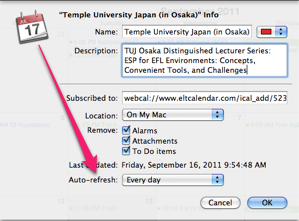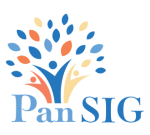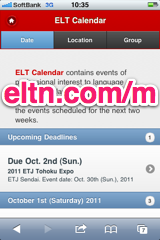Temple University Japan:
TUJ Distinguished Lecturer Series: Usage-Based Second Language Acquisition: Implicit and Explicit Learning and Their Interface
Date: Saturday, July 20th, 2019 Time: 2:00 PM - 5:00 PM
Speaker: Nick Ellis (University of Michigan, U.S.A.)
Description:
We learn language through our experiences of using language. Usage-based approaches to language investigate how this happens. Various disciplines collaborate in these inquiries. Corpus Linguistics explores the latent structure of the problem-space -- the usage evidence from which we learn. Cognitive Linguistics details our language representations -- the inventory of linguistic constructions as pairings of form and meaning or communicative function. Constructions range from simple morphemes like -ing, through lexis, to complex and abstract syntactic frames such as the Subject-Verb-Object-Object verb-argument construction.
Psycholinguistics is the experimental study of language processing. Psycholinguistic demonstrations of effects of frequency upon language processing provide evidence of the implicit learning over usage of this variety of symbolic associations.
Cognitive Psychology explores our complementary learning systems. Implicit learning occurs without conscious awareness; it involves simple learning mechanisms in the distributional analyses of the exemplars of a given form-meaning pair that take various characteristics of the exemplar into consideration, including how frequent it is and what kind of words and phrases and larger contexts it occurs with. Explicit learning involves more conscious, attentionally-focused, processing. It allows our learning of novel representations.
Emergentism concerns how language learning is a gradual process in which the language system emerges as a complex and adaptive (continuously fine-tuned) system from the interaction of these cognitive learning mechanisms during language interactions with other speakers in various social settings and media.
Applied Linguistics and cognitive psychology share a concern with the ways in which explicit learning impacts upon implicit learning. Answers to this issue of "interface" affect the ways we approach language acquisition, the ways we interact with learners, and whether and how we plan instruction.
This course will illustrate the contributions of these approaches to our understanding of first and second language learning of morphology, lexis, and verb-argument constructions.
Organization: Temple University Japan
Cost: free
Venue: TUJ Osaka Center: Osaka Ekimae Bldg. 3, 21st Floor, 1-1-3-2100 Umeda, Kita-ku, Osaka 530-0001 (map)
Location: Osaka City, Osaka Prefecture, Japan
![]() Add this to iCal
Add this to iCal
![]() (Need help?)
(Need help?)
![]() Add to Outlook
Add to Outlook
![]() (Need help?)
(Need help?)
You can add this event to your iCal calendar.
- Click on the iCal icon. Your iCal software will start.
- Click 'Subscribe':

- Under 'Auto Refresh', select 'Every day' in case the the basic details change:

You can add this event to your Microsoft Outlook calendar.
- Click on the MS Outlook icon.
- See what happens.
- Tell us what happens. I don't have MS Outlook on a Windows computer, so I can't test it.
- If you click on the icon and nothing happens, do this:
- Right-click on the icon and save the file.
- According to Microsoft's support page, in Outlook's File menu, you should click Import and Export.
- Click to select Import an iCalendar or vCalendar file (*.vcs), and then click Next.
- Click to select the vCalendar file you've just saved, and then click Open.
Contact Temple University Japan
Website: www.tuj.ac.jp/tesol/seminars/
Email QR Code:
Phone (work): 03-5441-9800






